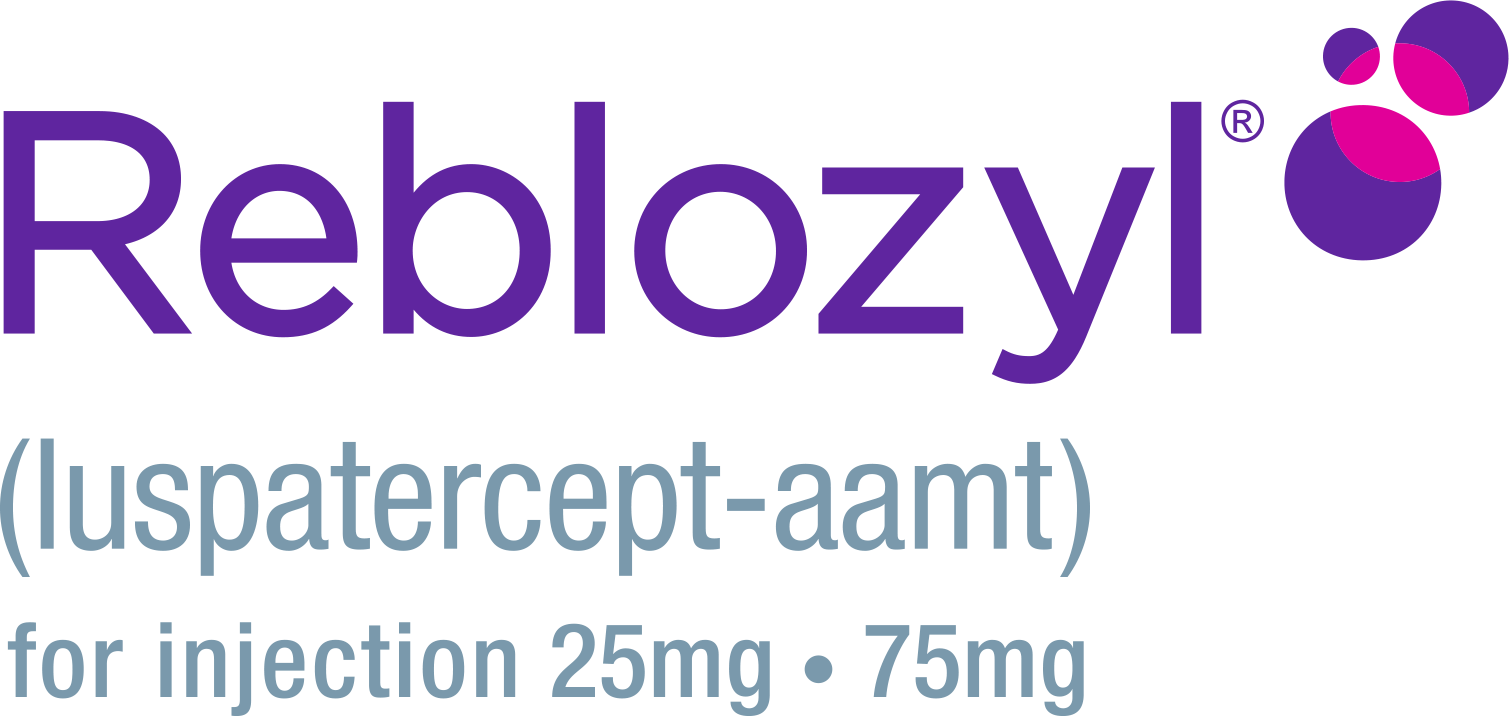When thinking about prescribing REBLOZYL, your healthcare
team will also consider factors, such as:

Your current treatments

How often you have red blood cell (RBC) transfusions (sometimes called a transfusion burden)

If you have had your spleen removed (splenectomy)

If you have any other health conditions, such as high blood pressure, or have had previous blood clots or extramedullary hematopoietic (EMH) masses
Considering these factors will help your doctor determine if REBLOZYL is right for you.

Talking to your doctor about REBLOZYL
Before you start REBLOZYL treatment, it’s important to set treatment goals with your healthcare team. Treatment goals can help you stay focused on what you want to achieve with REBLOZYL treatment. Talk openly with your healthcare team about what you want from treatment. Together, you and your healthcare team can make sure you get the most out of REBLOZYL.
Here are a few questions that can start the conversation with your healthcare team:
- Why is REBLOZYL right for me?
- What are the goals of my REBLOZYL treatment?
- What should I expect during my REBLOZYL treatment?
- What side effects might I experience?
- What are the most important things I need to know about REBLOZYL?
- How long will it take to know REBLOZYL is working? How will I know it’s working?
- Will my dose of REBLOZYL stay the same?
Every medicine comes with certain benefits and important safety considerations.
These might include:



Having open conversations with your healthcare team is crucial to managing your treatment. Doing this from the start will set a strong foundation that will continue over time.
- Ask questions
- Come to appointments prepared with any information you’ve been keeping track of. This information can include recent blood transfusions, recent hemoglobin (Hgb) levels, and any new or changing symptoms
- Talk openly about how treatment is going


